 Liane Zane brings her Elioud Legacy trilogy to a rousing and powerful conclusion in this novel, which was actually my favorite of the three. (Full disclosure at the outset: Liane, who’s a Goodreads friend of mine, generously gifted me with a paperback ARC, because she knew I’d really liked the two earlier books. No promise of a good review was offered or requested; this book amply earned that on its merits.)
Liane Zane brings her Elioud Legacy trilogy to a rousing and powerful conclusion in this novel, which was actually my favorite of the three. (Full disclosure at the outset: Liane, who’s a Goodreads friend of mine, generously gifted me with a paperback ARC, because she knew I’d really liked the two earlier books. No promise of a good review was offered or requested; this book amply earned that on its merits.)
This is definitely a series that needs to be read in order. Our story here opens in medias res, and readers who begin here won’t have much knowledge of the premise or the situation –nor, especially, of the characters and their relationships. You really need the context of the first two books to fully appreciate this one. (With that context, though, it becomes a wonderful capstone to the arch the author has crafted!) However, for the benefit of readers who haven’t read either of those books nor my or others’ reviews of them, and who may not have seen the book description either, the titular “Elioud” are human-angel hybrids (matings between the two races having begun before the Flood, and some unions –or rapes of humans by fallen angels– supposedly continuing to occur). Depending on their degree of angelic inheritance, Elioud may have special abilities that most humans do not, and may be quite long-lived (as in, centuries) as well. Those who are aware of what they are may choose, like other humans, to knowingly serve God or Satan (or, also like many humans, to imagine that they can just ignore that whole conflict and be neutrals). But for those on one side or the other, the term “spiritual warfare” may be a lot more literal than it is for most believers.
Near the beginning of the series opener, the three heroines of the trilogy, a close-knit trio of cross-national friends in their early 20s, all of them both working for their respective countries’ intelligence services and involved on the side in a sub rosa vigilante operation of their own against sex traffickers and predators, met three long-lived Elioud warriors, who revealed to the ladies that they also have angel ancestry. Together, the six of them were involved in fighting the nefarious plots, continued across the first two books, of the fallen angel Asmodeus, who’s now set himself up as a cult leader for a sect of brain-washed humans who call themselves bogomili, after a medieval heretical sect (but who are a lot more malevolent and murderous than their earlier, peaceful namesakes). The other aspect of the series plot is that each member of these two trios felt a strong attraction to a member of the other one. It wasn’t hard to predict that each of the three novels would focus on one of these pairs, and that the course of their romance would be an important plot strand. So here, Beta Cerna and Andras Nagy take center stage.
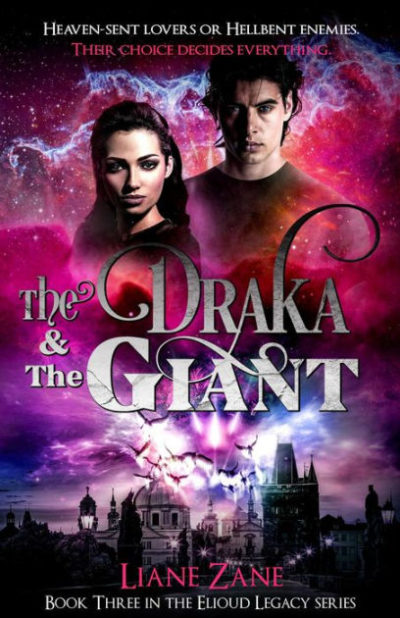 For me, in the previous books, these two characters had always seemed the least interesting and appealing, largely because I didn’t really know them. Indeed, Beta (short for Alzbeta –she’s Czech) is hard to get to know. She’s a “lone wolf” with very few friends, and a brusque manner that can come across as practically feral. And because Andras is big, strong and taciturn, and mostly inclined to obey orders, it’s easy to fall into the trap of subconsciously dismissing him as not very smart or sensitive (though that’s a great mistake!). But here they come into their own; we see them as the complex and special people they truly are. The previous book ended with Beta arousing a sleeping, half groggy Andras for an unexpected sexual encounter in his bed –and then vanishing before morning. When this book opens, none of the other five main characters have seen her for three years (so it’s now 2018). But we soon learn that there’s been more of a reason for her disappearance than her commitment issues. Much is going on, and Asmodeus (and his fellow demon Yeqon. whom we met in the second book) are exponentially ratcheting up their plans, which won’t bode well for humanity if they come to fruition. But the Archangel Michael (directed, of course, by God, though here He operates offstage) has plans too….
For me, in the previous books, these two characters had always seemed the least interesting and appealing, largely because I didn’t really know them. Indeed, Beta (short for Alzbeta –she’s Czech) is hard to get to know. She’s a “lone wolf” with very few friends, and a brusque manner that can come across as practically feral. And because Andras is big, strong and taciturn, and mostly inclined to obey orders, it’s easy to fall into the trap of subconsciously dismissing him as not very smart or sensitive (though that’s a great mistake!). But here they come into their own; we see them as the complex and special people they truly are. The previous book ended with Beta arousing a sleeping, half groggy Andras for an unexpected sexual encounter in his bed –and then vanishing before morning. When this book opens, none of the other five main characters have seen her for three years (so it’s now 2018). But we soon learn that there’s been more of a reason for her disappearance than her commitment issues. Much is going on, and Asmodeus (and his fellow demon Yeqon. whom we met in the second book) are exponentially ratcheting up their plans, which won’t bode well for humanity if they come to fruition. But the Archangel Michael (directed, of course, by God, though here He operates offstage) has plans too….
Many of the strengths of the preceding books are evident here also. Zane realizes the settings well (events take place in several European countries), and flavors the narrative with glimpses of the various customs, languages, folklore and cuisine of the nationalities represented. Her characters are round, vivid, dynamic, and distinct (every one of the six main characters have their own unique personalities, rather than being clones of the others, but the supporting characters are also clearly drawn). There’s a strong good vs. evil conflict (with a recognition that we wage this conflict in our own hearts, not just with other people), with high stakes and a lot of dramatic tension. Though this isn’t commercial “Christian fiction,” it’s fiction written by a Christian (the author is a practicing Roman Catholic) and the basic message is Christian. (As in much supernatural fiction, the angels vs. demons conflict is a metaphor for the spiritual conflicts of the real world.) My one quibble here is that our heroes and heroines don’t pray much in crisis situations (and they’re up to their eyeballs in the latter, which would do wonders for my prayer life!). But that’s a fairly minor point. It was also actually easier for me to achieve “suspension of disbelief” here than in the first two books, despite the continuing murky points of angelology/demonology, and the ramping up of Elioud powers here (the mating of two Elioud warriors enhances their abilities). Perhaps that’s because by now I’ve gotten more used to my Elioud friends and their fictional world. :-)
Bad language here is minimal. There are some references to lewd and disgusting sexual behavior (Asmodeus and Yeqon hang out in Amsterdam’s red-light district, and their sexual attitudes are what you’d expect from demons), and one instance of premarital, though not casual, sex; but Zane doesn’t emphasize the former any more than she has to, and the latter is explicit only up to a point. (Basically, the romantic content is quite wholesome, and a wedding –I’m not saying whose!– is one of the more moving scenes in the book.) This is definitely the most violent book of the series, though, with two major pitched battles and a body count through the roof, not all of the casualties being bad guys. However, fans of action thrillers won’t mind this, and fans who like their heroines tough will love Beta. (She’s a deadly accurate shot with both a pistol and a long gun, but her favorite weapons are her chain whip and her karambit, a hooked originally Indonesian knife modified as a switchblade, which she finds it soothing to flick open and closed when she’s nervous, the way some people tap their foot. :-) )
While this is, like the others in the trilogy, a thick, substantial novel, at 525 pages it doesn’t feel a bit overly long; I was immersed and interested immediately, and stayed so for every page. It’s also a highly evocative read emotionally, with some beautiful writing and imagery in places (and some very grim images as well). I’d enthusiastically recommend it to fans of supernatural fiction with Christian themes, of action thrillers or action heroines (or heroes), and of paranormal romance.
Author: Liane Zane
Publisher: Zephon Books; available through Amazon, both for Kindle and as a printed book.
A version of this review previously appeared on Goodreads.
 Liane Zane’s Elioud Legacy trilogy, all three books of which I’ve previously reviewed, is supernatural fiction, written by a Roman Catholic author, and premised on the fictional conceit that matings between angelic beings (both fallen and unfallen) and humans have been going on since before the Flood, producing mixed-race offspring who are physically human but have certain heightened physical or even latent supernatural abilities. That trilogy focused on three strong and courageous young women, who when it opened were completely unaware of their angelic genes, and all of whom were both serving in the intelligence services of their various countries, and collaborating with each other on the side in a covert alliance to provide some special protection for the victims of sexual assault and trafficking. The Covert Guardian is the first volume of a projected prequel trilogy, set a few years before the opening of the previously-published one, which will tell the “origin story” of their friendship and alliance. Here, our protagonist is Olivia Markham, the trio’s unofficial ringleader, and we learn how, as a 20-year-old college pre-med student, she unexpectedly came to join the CIA.
Unlike the first trilogy, this one really has no supernatural elements. Readers who’ve read the former will suspect, from certain subtle clues, that a couple of secondary characters here may also be Elioud, and will remember the St. Michael medal (a gift from her sensei) that Olivia wears, which feels strangely warm at times; and she has a sort of instinctive sixth sense for approaching danger that her then-boyfriend rather snidely dismisses as her “spidey sense.” But none of this is obviously paranormal nor impossible to explain naturalistically. I’ve classified the book as straight-out, descriptive action-adventure and espionage fiction, and it will definitely appeal to fans of those genres whether they have any liking for supernatural fiction or not.
The previously-published books mentioned, as a painful experience in Olivia’s past, the murder of her cousin Emily when the two girls were 16; they were close, and the tragedy was a formative factor in shaping Olivia’s deep desire to protect the innocent victims of brutality. In the modern U.S., the wheels of the justice system grind very slowly, so the killer’s trial was delayed until the summer before Olivia was to become a junior at Brown Univ. (She’s New England born and bred, living with her family in a suburban town outside Boston.) When our tale opens, soon after testifying, Olivia’s been talked by her boyfriend into joining him in a vacation on Ibiza, a real-life Mediterranean island off the coast of Spain which is a popular tourist destination, as a supposed opportunity to rest and heal from the re-lived traumatic experience. Even at this stage in her life, she’s strong, physically fit and athletic, smart, brave and quick-thinking; and since Emily’s murder, she’s been taking serious martial arts training. (And then there’s that “spidey sense” I mentioned….)
These qualities will stand her in good stead when, just four pages into the narrative, a squad of Islamist terrorists hit the beach, bent on slaughtering the revelers. Fortunately, a CIA counter-terrorist strike force is nearby; but by the time the action is over, Olivia’s displayed enough mettle to get their attention. (As they’ll soon learn, it also doesn’t hurt that she’s fluent in several languages, and qualified for the U.S. Olympic team in archery while still in high school.) Before the summer is over, she’s training at a CIA-run camp in North Carolina, and she feels that she’s found her true calling. And as luck would have it, an attractive female college student might just fit the mission profile for getting close to a wealthy young playboy type suspected of funding global terrorist activities. But chicanery, corruption, and betrayal of the U.S. aren’t necessarily things that only go on outside of the CIA, and our heroine’s path to joining the Company may not be an easy cake-walk.
Although the books of the Elioud Legacy trilogy are all thick, at just 155 pages, this one is more novella length, and a quick read. Like the former books, though, it moves around geographically, in this case to locations on three different continents; and the author’s knowledge of the physical geography of all of these settings is impressive. She’s a skilled wordsmith, seasoned in the novelist’s craft and able to immerse the reader in the story, and there are some surprises up her sleeve. For readers who want danger, tension, and well-depicted action scenes, this yarn definitely delivers. It’s not characterized by profound ethical dilemmas or deep spiritual, philosophical or political content, being more straightforward in those areas (in the context of the espionage genre, Zane is more in the tradition of Manning Coles or Alistair MacLean than, say, John LeCarre’), but I don’t view this as is any sense a fault, nor will most genre fans. What readers –genre fans or not– do want in fiction, more than action and danger, is the human element, a central character(s) we can like and feel invested in enough to care about the action and danger in the first place. That test is amply met here. Olivia is a winsome, dynamic protagonist whom we get to know and appreciate, and this is a character-driven tale of her growth and maturation in various ways in the crucible of a testing ordeal.
As I’ve said before in reviewing this author’s work, it’s fiction written by a Christian, rather than the kind of commercially “Christian fiction” the book trade markets as such. Olivia’s a basically kind and ethical-minded person, and cares about right and wrong as she understands them; but by her own statement, here she’s still “not really a believer.” Bad language is a hair more prominent here than in the first trilogy, though it’s actually more prominent in the first few pages here than it is in most of the book. College-age Olivia herself is capable, when she’s angry, of thinking or saying some pretty bad words, including obscenity (in a couple of languages). And though there’s no explicit sex, we know that an unmarried sexual encounter takes place at one point. The author makes us completely understand the psychology behind it; it’s a case of allowing the character to be who she realistically is, and possibly to grow through all of her decisions, both the good and the misguided ones, into the person she’s finally becoming. (That’s what good authors do.)
Finally, a worthwhile question might be, does a reader need to have read the Elioud Lagacy books before reading this one? My answer would be no; having read those books will allow you to better appreciate some adumbrations of the future you can see here, but it’s not essential, and no knowledge of them is presupposed here. You could begin with this book as an appetizer for the corpus as a whole.
Author: Liane Zane
Publisher: Zephon Romance; available through Amazon, both for Kindle and as a printed book.
A version of this review previously appeared on Goodreads.
Liane Zane’s Elioud Legacy trilogy, all three books of which I’ve previously reviewed, is supernatural fiction, written by a Roman Catholic author, and premised on the fictional conceit that matings between angelic beings (both fallen and unfallen) and humans have been going on since before the Flood, producing mixed-race offspring who are physically human but have certain heightened physical or even latent supernatural abilities. That trilogy focused on three strong and courageous young women, who when it opened were completely unaware of their angelic genes, and all of whom were both serving in the intelligence services of their various countries, and collaborating with each other on the side in a covert alliance to provide some special protection for the victims of sexual assault and trafficking. The Covert Guardian is the first volume of a projected prequel trilogy, set a few years before the opening of the previously-published one, which will tell the “origin story” of their friendship and alliance. Here, our protagonist is Olivia Markham, the trio’s unofficial ringleader, and we learn how, as a 20-year-old college pre-med student, she unexpectedly came to join the CIA.
Unlike the first trilogy, this one really has no supernatural elements. Readers who’ve read the former will suspect, from certain subtle clues, that a couple of secondary characters here may also be Elioud, and will remember the St. Michael medal (a gift from her sensei) that Olivia wears, which feels strangely warm at times; and she has a sort of instinctive sixth sense for approaching danger that her then-boyfriend rather snidely dismisses as her “spidey sense.” But none of this is obviously paranormal nor impossible to explain naturalistically. I’ve classified the book as straight-out, descriptive action-adventure and espionage fiction, and it will definitely appeal to fans of those genres whether they have any liking for supernatural fiction or not.
The previously-published books mentioned, as a painful experience in Olivia’s past, the murder of her cousin Emily when the two girls were 16; they were close, and the tragedy was a formative factor in shaping Olivia’s deep desire to protect the innocent victims of brutality. In the modern U.S., the wheels of the justice system grind very slowly, so the killer’s trial was delayed until the summer before Olivia was to become a junior at Brown Univ. (She’s New England born and bred, living with her family in a suburban town outside Boston.) When our tale opens, soon after testifying, Olivia’s been talked by her boyfriend into joining him in a vacation on Ibiza, a real-life Mediterranean island off the coast of Spain which is a popular tourist destination, as a supposed opportunity to rest and heal from the re-lived traumatic experience. Even at this stage in her life, she’s strong, physically fit and athletic, smart, brave and quick-thinking; and since Emily’s murder, she’s been taking serious martial arts training. (And then there’s that “spidey sense” I mentioned….)
These qualities will stand her in good stead when, just four pages into the narrative, a squad of Islamist terrorists hit the beach, bent on slaughtering the revelers. Fortunately, a CIA counter-terrorist strike force is nearby; but by the time the action is over, Olivia’s displayed enough mettle to get their attention. (As they’ll soon learn, it also doesn’t hurt that she’s fluent in several languages, and qualified for the U.S. Olympic team in archery while still in high school.) Before the summer is over, she’s training at a CIA-run camp in North Carolina, and she feels that she’s found her true calling. And as luck would have it, an attractive female college student might just fit the mission profile for getting close to a wealthy young playboy type suspected of funding global terrorist activities. But chicanery, corruption, and betrayal of the U.S. aren’t necessarily things that only go on outside of the CIA, and our heroine’s path to joining the Company may not be an easy cake-walk.
Although the books of the Elioud Legacy trilogy are all thick, at just 155 pages, this one is more novella length, and a quick read. Like the former books, though, it moves around geographically, in this case to locations on three different continents; and the author’s knowledge of the physical geography of all of these settings is impressive. She’s a skilled wordsmith, seasoned in the novelist’s craft and able to immerse the reader in the story, and there are some surprises up her sleeve. For readers who want danger, tension, and well-depicted action scenes, this yarn definitely delivers. It’s not characterized by profound ethical dilemmas or deep spiritual, philosophical or political content, being more straightforward in those areas (in the context of the espionage genre, Zane is more in the tradition of Manning Coles or Alistair MacLean than, say, John LeCarre’), but I don’t view this as is any sense a fault, nor will most genre fans. What readers –genre fans or not– do want in fiction, more than action and danger, is the human element, a central character(s) we can like and feel invested in enough to care about the action and danger in the first place. That test is amply met here. Olivia is a winsome, dynamic protagonist whom we get to know and appreciate, and this is a character-driven tale of her growth and maturation in various ways in the crucible of a testing ordeal.
As I’ve said before in reviewing this author’s work, it’s fiction written by a Christian, rather than the kind of commercially “Christian fiction” the book trade markets as such. Olivia’s a basically kind and ethical-minded person, and cares about right and wrong as she understands them; but by her own statement, here she’s still “not really a believer.” Bad language is a hair more prominent here than in the first trilogy, though it’s actually more prominent in the first few pages here than it is in most of the book. College-age Olivia herself is capable, when she’s angry, of thinking or saying some pretty bad words, including obscenity (in a couple of languages). And though there’s no explicit sex, we know that an unmarried sexual encounter takes place at one point. The author makes us completely understand the psychology behind it; it’s a case of allowing the character to be who she realistically is, and possibly to grow through all of her decisions, both the good and the misguided ones, into the person she’s finally becoming. (That’s what good authors do.)
Finally, a worthwhile question might be, does a reader need to have read the Elioud Lagacy books before reading this one? My answer would be no; having read those books will allow you to better appreciate some adumbrations of the future you can see here, but it’s not essential, and no knowledge of them is presupposed here. You could begin with this book as an appetizer for the corpus as a whole.
Author: Liane Zane
Publisher: Zephon Romance; available through Amazon, both for Kindle and as a printed book.
A version of this review previously appeared on Goodreads.





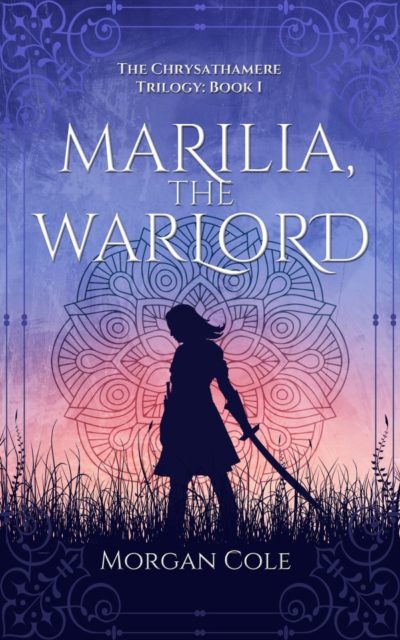 This is a fairly classic “rise from nowhere” story, yet is well-executed and done in a world which is interesting for its differences. The heroine is – surprise! – Marilia, whom we first meet on the battlefield, about to face an opponent of superior numbers. We then flash back to her childhood, growing up in a Tyracian brothel. Her mother was one of the “painted ladies,” but after she dies, Marilia and her brother Annuweth are on increasingly thin ice. Their effort to run away is unsuccessful, yet does bring them a chance at a new life. While it’s here that Marilia discovers her tactical savvy through board games, it’s not without its downside, the siblings being split up after Marilia enters an arranged marriage in another territory.
This is a fairly classic “rise from nowhere” story, yet is well-executed and done in a world which is interesting for its differences. The heroine is – surprise! – Marilia, whom we first meet on the battlefield, about to face an opponent of superior numbers. We then flash back to her childhood, growing up in a Tyracian brothel. Her mother was one of the “painted ladies,” but after she dies, Marilia and her brother Annuweth are on increasingly thin ice. Their effort to run away is unsuccessful, yet does bring them a chance at a new life. While it’s here that Marilia discovers her tactical savvy through board games, it’s not without its downside, the siblings being split up after Marilia enters an arranged marriage in another territory.
 I’ve been on a bit of a kick of
I’ve been on a bit of a kick of 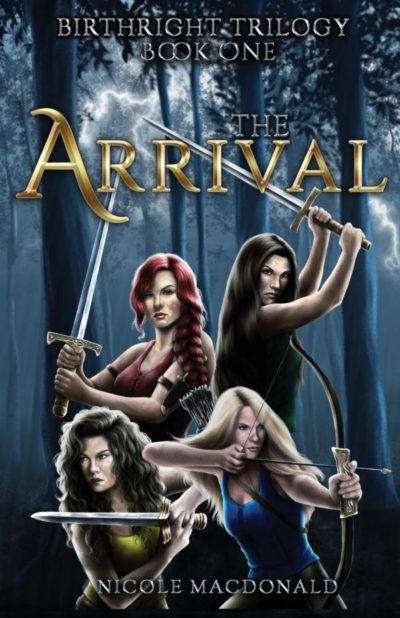 I’ve made a terrible mistake. I don’t recall exactly at what point in reading this, I first came to that conclusion. It may have been the multi-page description of dress fitting. It could have been the lengthy shopping expedition. But it’s safe to say that, if I hadn’t been running behind on book reviews, this would almost certainly have been a Did Not Finish, and consigned to the recycle bin of oblivion. The main problem, if definitely not the only one, is the mismatch between the description and reality. The Amazon page describes it, rather breathlessly, as “An Epic Fantasy Romance Adventure.” Silly me, I expected this to mean about equal amounts of those elements, especially given the cover. A more accurate description would be, “A Romantic Epic Romance Fantasy ROMANCE Romance Adventure ROMANCE, with added
I’ve made a terrible mistake. I don’t recall exactly at what point in reading this, I first came to that conclusion. It may have been the multi-page description of dress fitting. It could have been the lengthy shopping expedition. But it’s safe to say that, if I hadn’t been running behind on book reviews, this would almost certainly have been a Did Not Finish, and consigned to the recycle bin of oblivion. The main problem, if definitely not the only one, is the mismatch between the description and reality. The Amazon page describes it, rather breathlessly, as “An Epic Fantasy Romance Adventure.” Silly me, I expected this to mean about equal amounts of those elements, especially given the cover. A more accurate description would be, “A Romantic Epic Romance Fantasy ROMANCE Romance Adventure ROMANCE, with added 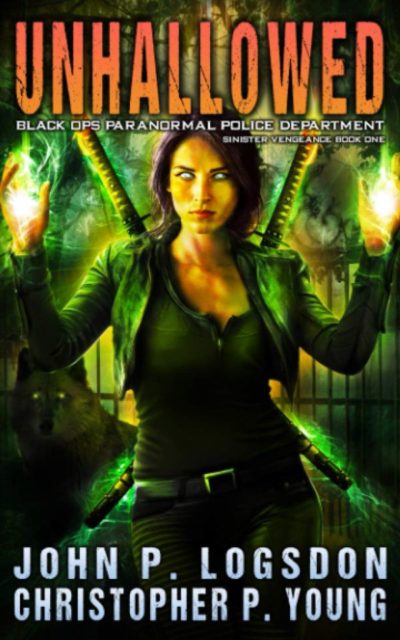 This seems to come from a subset of a whole slew of Paranormal Police Department series in which Logsdon is involved with various authors, e.g. NYPPD. I don’t believe you need to have read those, although I did feel a bit dumped in at the deep end here. Evangeline is a resident of a demonic realm and member of House Sinister, a group who are all but wiped out in a surprise attack. Key words: “all but”. The job needs to be finished, but before that can happen, Evangeline flees to the human world – Los Angeles in particular – taking over the body of a rich socialite who conveniently just died in a car crash, so is ripe for possession.
This seems to come from a subset of a whole slew of Paranormal Police Department series in which Logsdon is involved with various authors, e.g. NYPPD. I don’t believe you need to have read those, although I did feel a bit dumped in at the deep end here. Evangeline is a resident of a demonic realm and member of House Sinister, a group who are all but wiped out in a surprise attack. Key words: “all but”. The job needs to be finished, but before that can happen, Evangeline flees to the human world – Los Angeles in particular – taking over the body of a rich socialite who conveniently just died in a car crash, so is ripe for possession.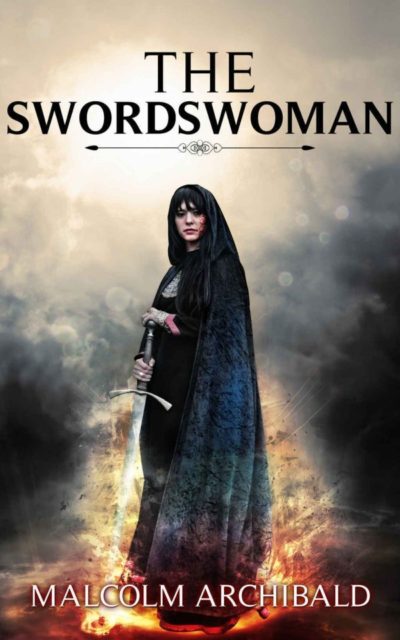 That peace is shattered when someone is washed up on the Western Isles island of Dachaigh where 20-year-old Melcorka lives with her mother. It turns out the Norse are invading, and the king must be notified of the threat. Melcorka and the rest of her clan head towards the capital, only to arrive too late: the army of Alba (as Scotland was then called) has been routed and the nobles scattered. However, Melcorka has a destiny to fulfill… And also inherits a large sword, Defender, with a history dating back centuries, whose powers transform her into the titular character. It’s up to her to rally forces, including the ferocious Picts from the North, to take on the invaders, and send them back across the North Sea to Scandinavia.
That peace is shattered when someone is washed up on the Western Isles island of Dachaigh where 20-year-old Melcorka lives with her mother. It turns out the Norse are invading, and the king must be notified of the threat. Melcorka and the rest of her clan head towards the capital, only to arrive too late: the army of Alba (as Scotland was then called) has been routed and the nobles scattered. However, Melcorka has a destiny to fulfill… And also inherits a large sword, Defender, with a history dating back centuries, whose powers transform her into the titular character. It’s up to her to rally forces, including the ferocious Picts from the North, to take on the invaders, and send them back across the North Sea to Scandinavia. For me, in the previous books, these two characters had always seemed the least interesting and appealing, largely because I didn’t really know them. Indeed, Beta (short for Alzbeta –she’s Czech) is hard to get to know. She’s a “lone wolf” with very few friends, and a brusque manner that can come across as practically feral. And because Andras is big, strong and taciturn, and mostly inclined to obey orders, it’s easy to fall into the trap of subconsciously dismissing him as not very smart or sensitive (though that’s a great mistake!). But here they come into their own; we see them as the complex and special people they truly are. The previous book ended with Beta arousing a sleeping, half groggy Andras for an unexpected sexual encounter in his bed –and then vanishing before morning. When this book opens, none of the other five main characters have seen her for three years (so it’s now 2018). But we soon learn that there’s been more of a reason for her disappearance than her commitment issues. Much is going on, and Asmodeus (and his fellow demon Yeqon. whom we met in the second book) are exponentially ratcheting up their plans, which won’t bode well for humanity if they come to fruition. But the Archangel Michael (directed, of course, by God, though here He operates offstage) has plans too….
For me, in the previous books, these two characters had always seemed the least interesting and appealing, largely because I didn’t really know them. Indeed, Beta (short for Alzbeta –she’s Czech) is hard to get to know. She’s a “lone wolf” with very few friends, and a brusque manner that can come across as practically feral. And because Andras is big, strong and taciturn, and mostly inclined to obey orders, it’s easy to fall into the trap of subconsciously dismissing him as not very smart or sensitive (though that’s a great mistake!). But here they come into their own; we see them as the complex and special people they truly are. The previous book ended with Beta arousing a sleeping, half groggy Andras for an unexpected sexual encounter in his bed –and then vanishing before morning. When this book opens, none of the other five main characters have seen her for three years (so it’s now 2018). But we soon learn that there’s been more of a reason for her disappearance than her commitment issues. Much is going on, and Asmodeus (and his fellow demon Yeqon. whom we met in the second book) are exponentially ratcheting up their plans, which won’t bode well for humanity if they come to fruition. But the Archangel Michael (directed, of course, by God, though here He operates offstage) has plans too….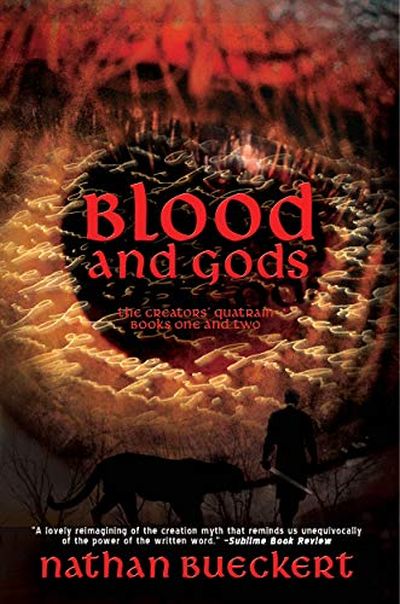 What I’ll remember about this one is the arc. Not so much of any character, more as to whether or not this would qualify for the site. The story began on solid enough ground, but around the end of the first volume (this omnibus contains parts 1+2), it plummeted well below the threshold needed. I almost gave up reading at that point, but persisted, and the book did rebound with an extended, gory finale in which the heroine and her ally took on what felt like an entire city. Okay, it’s back in. But I’m not happy about it, for reasons I’ll get to in a bit.
What I’ll remember about this one is the arc. Not so much of any character, more as to whether or not this would qualify for the site. The story began on solid enough ground, but around the end of the first volume (this omnibus contains parts 1+2), it plummeted well below the threshold needed. I almost gave up reading at that point, but persisted, and the book did rebound with an extended, gory finale in which the heroine and her ally took on what felt like an entire city. Okay, it’s back in. But I’m not happy about it, for reasons I’ll get to in a bit.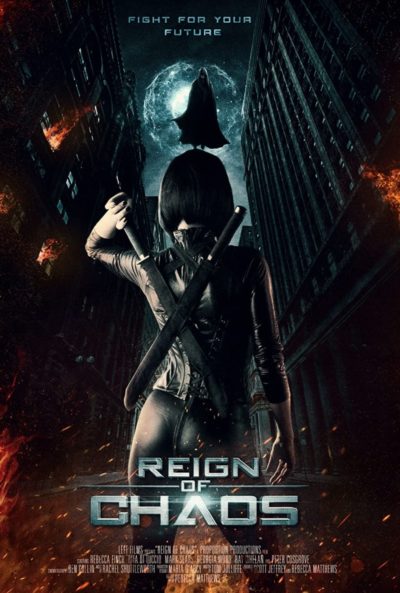 There are spells where I find myself going through a stream of mediocre movies, wondering when I’ll see something genuinely good. Then, I stumble into the likes of this, which leaves me yearning for the heady delights of mediocrity. It was in trouble right from the start, with five minutes of opening voice-over that did nothing but leave me confused. Then again, if your story requires five minutes of opening voice-over in the first place, you should probably rethink your storytelling techniques. The same could be said for a post-apocalyptic scenario in which food is in short supply, yet black pleather cat-suits are apparently easily available, in a range of sizes to fit all needs.
There are spells where I find myself going through a stream of mediocre movies, wondering when I’ll see something genuinely good. Then, I stumble into the likes of this, which leaves me yearning for the heady delights of mediocrity. It was in trouble right from the start, with five minutes of opening voice-over that did nothing but leave me confused. Then again, if your story requires five minutes of opening voice-over in the first place, you should probably rethink your storytelling techniques. The same could be said for a post-apocalyptic scenario in which food is in short supply, yet black pleather cat-suits are apparently easily available, in a range of sizes to fit all needs.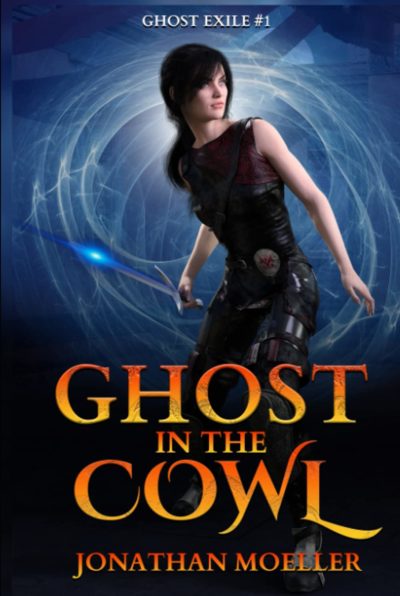 This one was probably teetering on the edge of a seal of approval, except one aspect. For what’s supposed to be book one in a series, the author spends a lot of time discussing events prior to the book getting under way, such as the tragic loss of the heroine’s true love. However, subsequent research revealed that this is not the start of Caina Amalas’s history. The Ghost Exile series is actually a sub-set of her saga, which appears to consist of no less than 26 primary works. According to
This one was probably teetering on the edge of a seal of approval, except one aspect. For what’s supposed to be book one in a series, the author spends a lot of time discussing events prior to the book getting under way, such as the tragic loss of the heroine’s true love. However, subsequent research revealed that this is not the start of Caina Amalas’s history. The Ghost Exile series is actually a sub-set of her saga, which appears to consist of no less than 26 primary works. According to